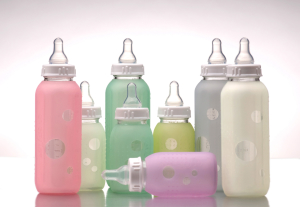My sisters and I have to completely different body types, I’m pretty tall and curvy while they are both short and very thin. I’ve always wondered why we have such different figures, when I asked my mom she told me that it was because I was given baby formula while they were breast-fed. And now I wonder if there is a difference in how formula or breast milk affects a baby’s development.
Infants who are exclusively breastfed for six months – not having any other solids or liquids other than human milk – are less likely to become subject to gastrointestinal infection. This is found by assessing information provided by 23 independent studies from 11 developing countries. A majority of these studies found that children subject to exclusive breastfeeding have no significant difference in height, weight, or body mass index at 6.5 years of age in comparison to those who are not exclusively breastfed.
As always we must consider any underlying facts. Could the country itself be a factor in this study? It’s safe to say that the people United States has different eating habits than those in countries such as Finland or Belarus. We have access to foods other countries have difficulty finding and vise versa. Is it possible that the food of the countries women live in can have an effect on the quality of their breast milk? Also, does the amount of times that a mother feeds her child have an affect on development? Will a child who is fed 5 times a day be consuming more nutrients than those who are fed 3 times a day? These facts are not given in the study.
In comparison, a study that compared the feeding habits in siblings during infancy and how they affected their development found that the sibling who was bottle fed did better on 10 of the 11 outcomes studied. Researches took note of 3 physical measures (BMI, obesity and asthma diagnosis), 3 behavioral indicators (hyperactivity, parental attachment and behavioral compliance) as well as five outcomes used to predict academic achievement (Vocabulary Test, Reading Recognition, Math Ability, Wechsler Intelligence Scale, and scholastic competence).
This study was performed on siblings 4 to 14 years of age. Some discrepancies could be that the children aren’t fully matured yet. What if one should go through puberty slower than the other, but in the end they both end up with similar physical, behavioral, and academic attributes? And are health issues taken into account? Are they a part of the study?
Although most people will say that breast feeding is better than baby formula, we can’t be completely sure that a child will develop better if exclusively breastfed.
http://www.sciencedirect.com/science/article/pii/S0277953614000549
http://well.blogs.nytimes.com/2014/03/04/is-breast-feeding-really-better/
http://summaries.cochrane.org/CD003517/PREG_optimal-duration-of-exclusive-breastfeeding

